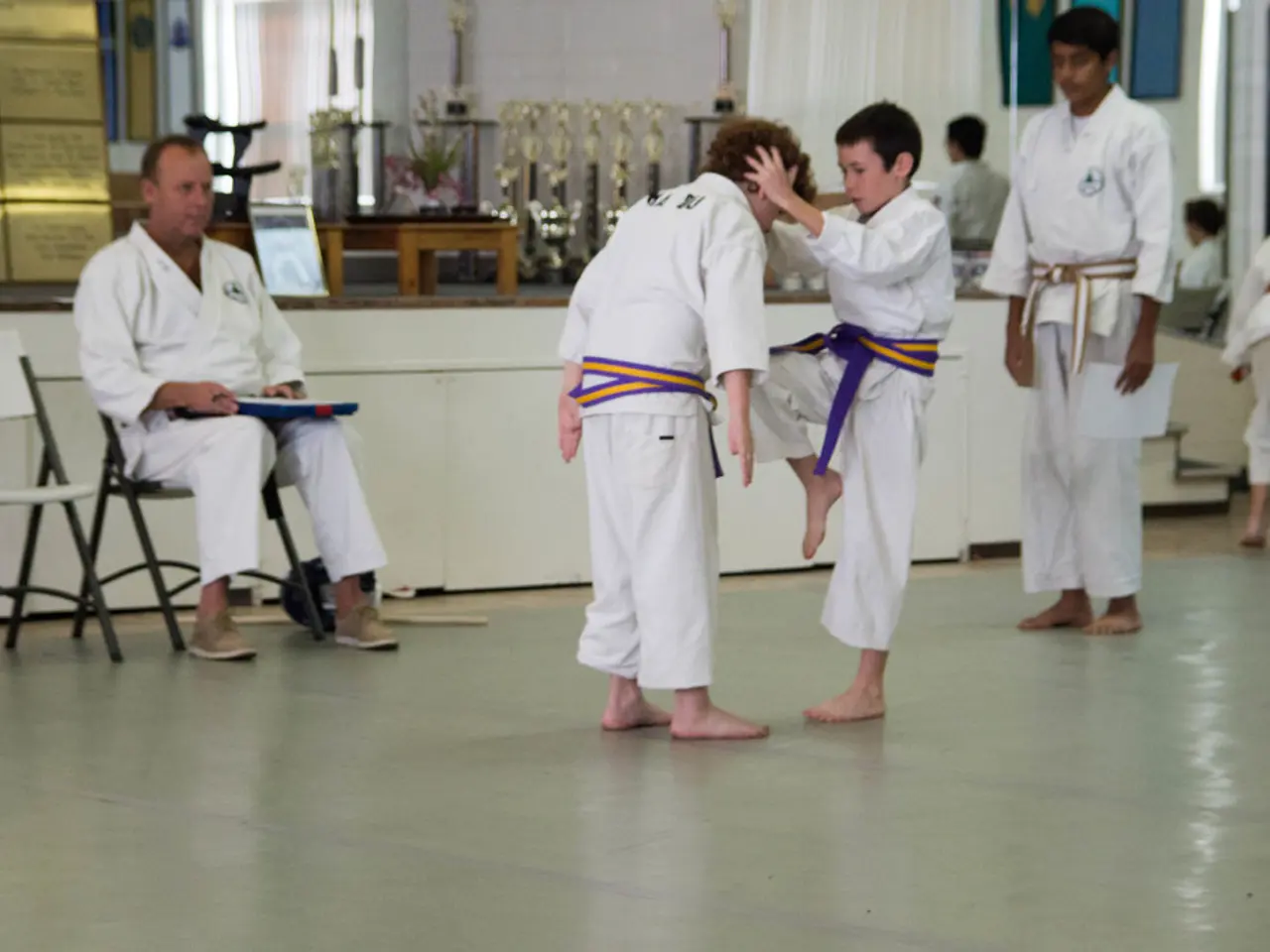Bruce Lee's Enduring Impact: 7 Factors That Keep Him Punching Strong
Bruce Lee, the legendary martial artist and actor, was born in San Francisco in 1940 to a unique family background. His father, Lee Hoi-chuen, was a renowned Cantonese opera singer from Hong Kong, while his mother, Grace Ho, was of mixed ethnicity, generally accepted as partly Chinese and partly European, with Jewish ancestry through her great-grandfather, Mozes Hartog Bosman [1][5].
Growing up bilingual and bicultural, Lee was exposed to both Eastern and Western cultures. His father's career in Cantonese opera introduced him to the performing arts and cultural traditions in Hong Kong. However, his family's prominence and artistic background could not shield him from the hardships of the Japanese occupation during World War II, which he experienced as a child [1].
Lee's multicultural upbringing influenced his openness to blending martial arts philosophy and cross-cultural ideas, which later shaped his development of Jeet Kune Do and his advocacy of cultural inclusivity seen in his life and teachings [1][2].
Lee made his acting debut in a Hong Kong movie called "The Kid" at the age of 10. He went on to star in several movies, including "The Big Boss", which was his first movie to feature his unique fight choreography and became a box office success in Asia, propelling him into a new level of fame [1].
American producers took notice of Lee's Asian stardom, setting the stage for his Hollywood career. He began his Hollywood journey as a kung fu instructor to the stars, including Steve McQueen, James Coburn, and Roman Polanski [1]. His first and only role on American television was as the fast-fisted sidekick Kato on the series "The Green Hornet".
Lee's Hollywood breakthrough was the film "Enter the Dragon", which unfortunately, he died a month before its premiere, at the age of 32 [1]. Despite this tragic turn of events, "Enter the Dragon" became a monumental success, cementing Lee's legacy as a global icon who bridged East and West culturally and philosophically [1].
Lee's legacy continues to inspire. In October 2020, his daughter, Shannon, released a book of his philosophical teachings called "Be Water, My Friend: The Teachings of Bruce Lee" [1]. His son, Brandon, also followed in his father's footsteps, acting in films before his untimely death while filming "The Crow" [1].
Despite the numerous conspiracy theories surrounding his death, the official cause was a brain edema caused by an allergic reaction to a pain reliever [1]. Bruce Lee's life and work continue to resonate, bridging cultures and inspiring millions around the world.
References:
[1] "Bruce Lee: The Man Only I Knew" by Linda Lee Cadwell [2] "Striking Distance: Bruce Lee and the Aftermath of a Champion" by Matthew Polly [3] "Bruce Lee: A Life" by Matthew Polly [4] "The Art of Expressing the Human Body" by Bruce Lee [5] "Bruce Lee: A Biography" by Robert W. Wallis
In the world of entertainment, Lee's unique blend of martial arts and acting, especially in films like "Enter the Dragon," attracted not only Asian but also Hollywood celebrities, including Steve McQueen and James Coburn. Moreover, sports personalities like Roman Polanski also sought his kung fu instruction, demonstrating Lee's wide-ranging influence in both Eastern and Western cultures.








